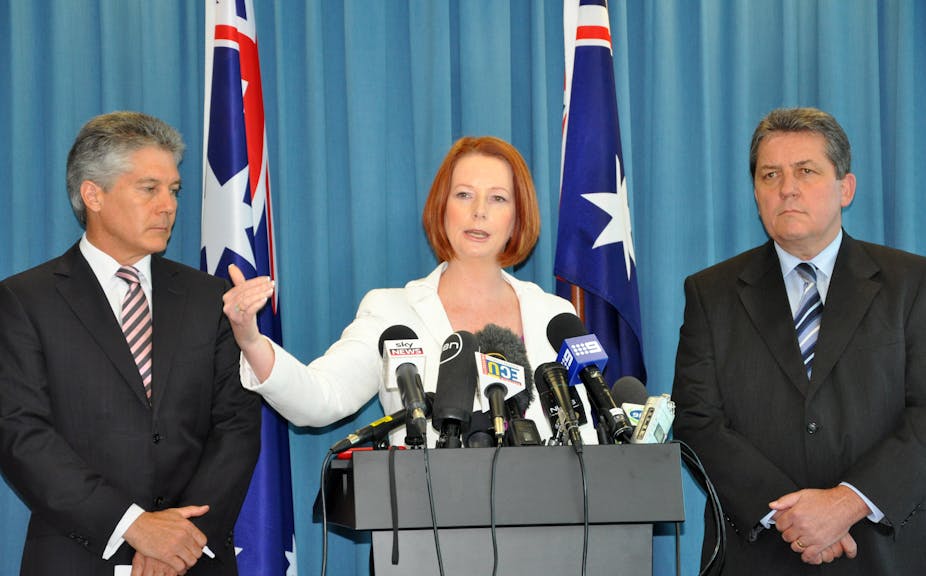Why has the Federal Government launched a review into the distribution of GST revenue among the states?
There are two reasons. One, there is a need for genuine reform in that the effective amount of GST being returned to states is falling.
In Western Australia it is about 68 cents in the dollar, and there are some suggestions that it could fall to as low as 40 cents at the current trend.
There’s a feeling that the states earning income are being penalised in that they are seeing a reduction through the Grants Committee allocations - a reduction in the GST money.
The second thing is that the most affected states — Queensland and Western Australia — are also the most anti-Labor states at the moment. So I think that there is a political aspect to it as well.
What are the economic benefits of reforming the distribution of GST receipts?
That’s a difficult question. At the moment you have a grants commission which presumably has the final authority on any revenue allocation.
Presumably they allocate funds to states in a way that aims to maximise economic growth for Australia as a whole. Therefore, you would hope that is what they are doing.
If you bring in a system where states are guaranteed a certain percentage of the GST then you are removing the ability of the committee to do that.
So, while states are doing well their GST revenue will increase and while they are doing badly it will go down.
What the overall impact on the Australian economy will be is unclear. That will require a fair bit of scenario modelling to figure out what exactly will happen if you change revenue allocation.
Former NSW and Victorian premiers, Nick Greiner and John Brumby are heading the review with South Australian businessman Bruce Carter. Are they right for the job?
I don’t think either Brumby or Greiner are renowned for their economic expertise.
No doubt they will call upon people to consult, and they will call on people who they are familiar with, such as officials from the NSW Treasury and the Victorian Treasury.
They would be better off outsourcing the research to an independent consultant like Access Economics or somebody who has a reasonable reputation for objectivity.
Tasmanian Premier Lara Giddings has criticised the review, saying that all states should benefit from the mining boom. Do you agree?
Yes I do. If you personalise it, it’s a bit like an entrepreneur doing well and saying “I should have a large income because I’ve been successful.” But supporting that person is a whole network of laws, regulations and infrastructure on which they depend.
It’s essentially the same thing here. The Australian mining industry is successful because the law on overseas investment is a Commonwealth law. The provision of infrastructure increasingly comes from the Commonwealth.
The industry is helped by the free movement of labour across Australia, which again happens because we have a commonwealth system.
You should have a system where states are rewarded for encouraging investment and growing, but you also have to realise that they’re part of an overall structure.
The other point is that Tasmania is almost certain to lose.
Given that the proposed resources tax will see an end to state-based mining royalties, is this GST review actually irrelevant?
It may not be irrelevant, but it may be a way for the Federal Government to say to the resource-rich states: “Don’t worry about royalties going, because you’re going to do really well from the reallocation of the GST”.
The royalties shouldn’t be an issue in this debate because they will be gone after the resources tax is introduced.
They are only an issue because if they are going, what is going to replace them?
Have the recent Coalition election victories in NSW and Victoria played a role?
The Federal Government is going to need all the states on-side if wants to introduce the resources tax and abolish resource royalties.
It’s a way of heading off a future problem. If you do have a situation where West Australia is receiving only 40 cents in the dollar returns from the GST, then there will be serious problems.
In that regard, it is a reasonably timely reform.
It may have been hastened by poor political results recently, but it was probably coming anyway.

